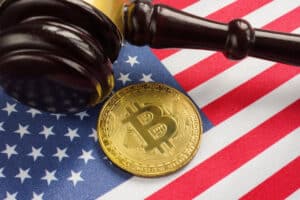
Abra Confirms the Purchase of Valkyrie’s Cryptocurrency Trusts
According to the details, trading platform Abra confirmed the purchase of Valkyrie trusts after completing negotiations with 25 US state regulatory agencies. These negotiations were conducted to discuss the details of the regulatory violations for the financial licensing process.
The platform purchased the private crypto trust of Valkyrie in 2024. This acquisition was done prior to the settlement between the trading platform and financial regulators hailing from 25 US states.
Abra Acquires Valkyrie’s Trusts
Bloomberg report suggested that Abra purchased various products from Valkyrie such as Tron trust, and Zilliqa trust. Both trusts were sold at an evaluation of $50 million and $21 million simultaneously.
At the same time, Abra proceeded to purchase more digital asset trusts that were operated and managed by Valkyrie. Head of asset management, Marissa Kim noted that the trading platform was set to list these trusts on public trading platforms.
She further stated that the decision will be finalized in case there is a market demand for the growth of these investment options. Regulators hailing from Texas brought allegations against Abra for dealing with insolvency and committing security fraud last year.
The State Securities Board of Texas stated that the firm has been insolvent since last year and also served a cease-and-desist order against the Abra trading platform in June of the same year.
Abra Reaches a Deal with the Texas State Securities Board
Abra trading platform confirmed a deal with the States Securities Board of Texas in the first month of 2024. This settlement convinced the trading platform to fold operations with Abra in agreement.
Therefore, the platform issued a notification of halting business activities addressed to its investors. This notification directed the investors that all accounts with greater than $10 fund should make withdrawals.
The management of the trading platform notified investors that the remaining funds would be liquidated into fiat and sent to Texas-based investors. Abra founder William Barhydt noticed that this trading platform did not halt withdrawals for US investors.
At the same time, he noticed that the firm was committed to reducing its stake in the retail sector operating in the United States. During the start of the ongoing year, CoinShares confirmed the acquisition of Valkyrie ETF and advisory branches.
The firm has announced since then its aim to rebrand Valkyrie as part of its expansion goals in the United States. Another Cointelegraph article indicated a major victory for Binance. A court in the United States has granted permission to the trading platform to invest customer funds into US Treasury Bills on a 4-week basis.
The platform will now be able to legally invest in US Treasury bills using the funds that are stored in BitGo. As of 19th July, US courts granted Binance permission to go ahead with the new investment venture.
Binance Reports Major Victory Following the Landmark Decision by the US Court
The ruling was finalized by a District Court of Columbia that postulated that Binance was entitled to invest specified portions of customer funds using a third-party management services provider.
However, the ruling retained that Binance shall not reinvest the same fund into the company or any of its related entities. The court has further stated that Binance is under obligation to produce data projections to account for the cost incurred on a monthly basis that will contain the details regarding its business expenses and activities.
The decision is reflective of the efforts of US authorities to support the value of USD in the midst of de-dollarization. In the same vein, US regulators have also increased collateralization requirements for stablecoin issuers to strengthen USD dominance through trading in US debt instruments.
House representative Paul Ryan claimed that stablecoins have the ability to relieve debt issue. He mentioned the rising demand for USD-backed stablecoins that has led to the rise of USD and US debt instruments demand.




